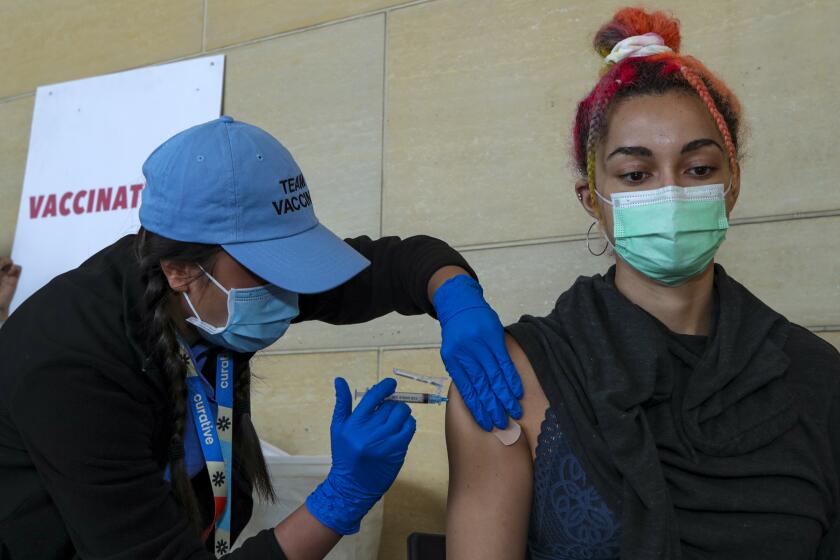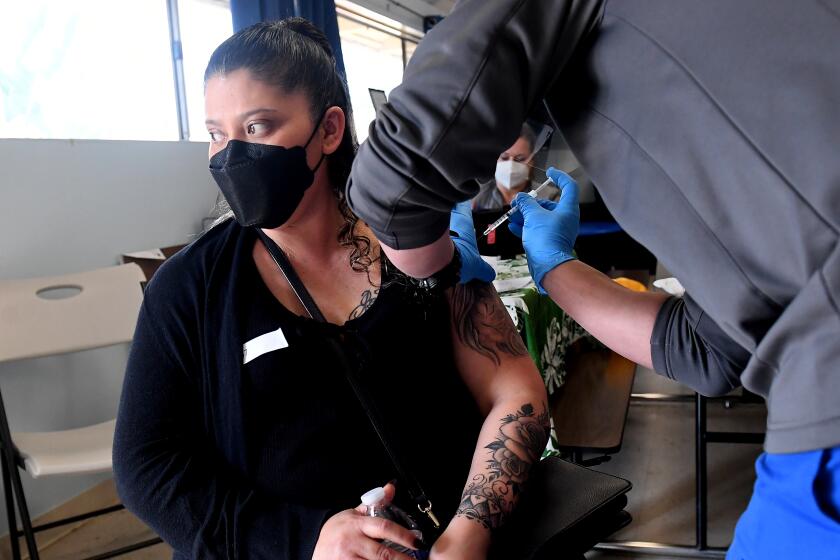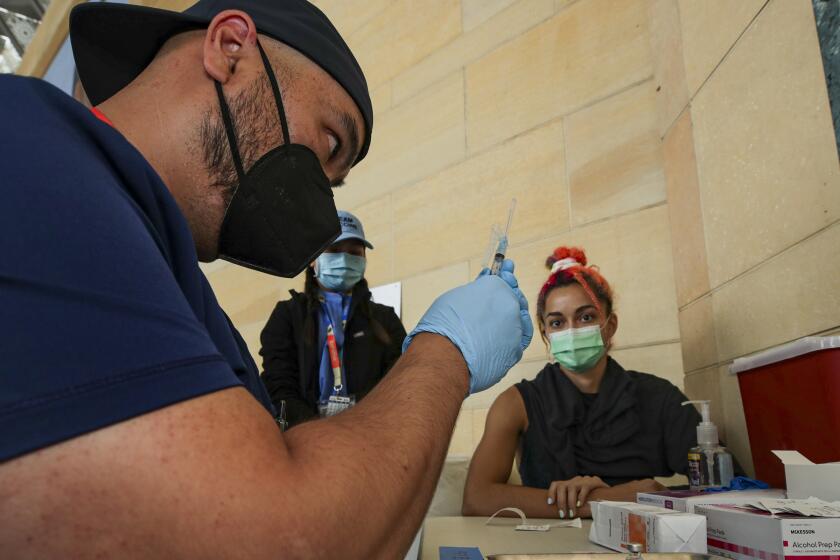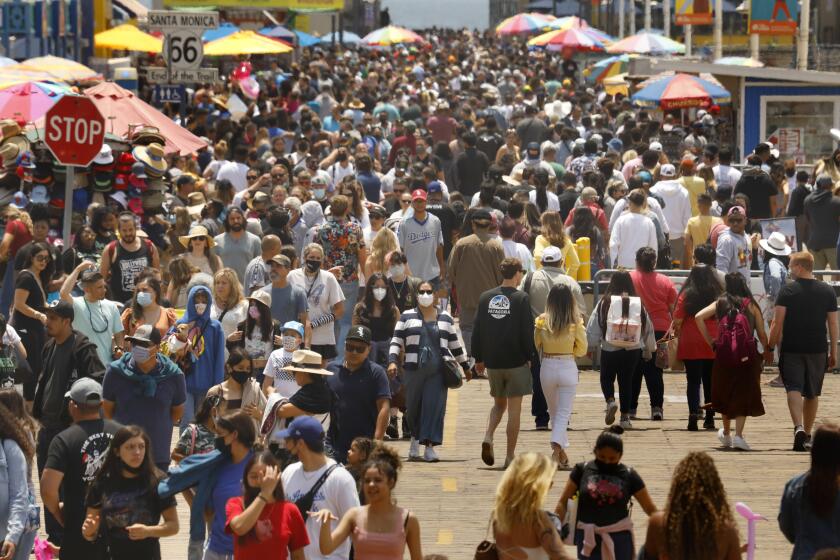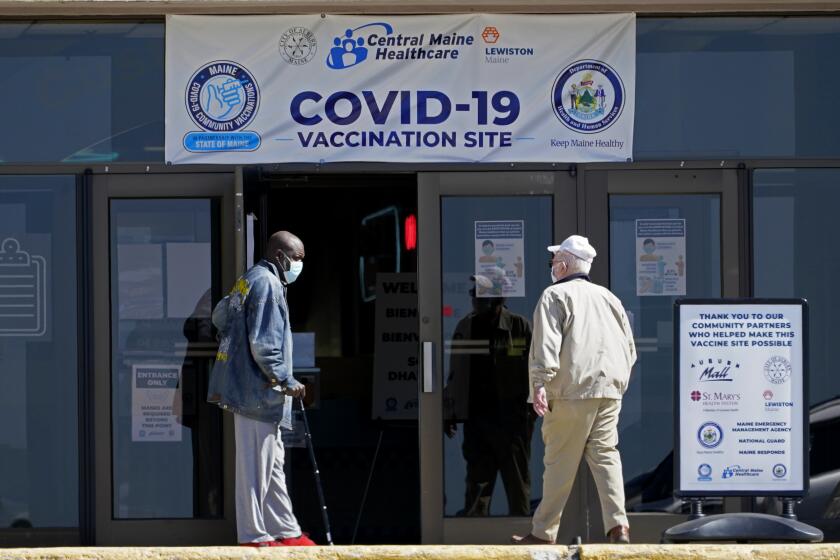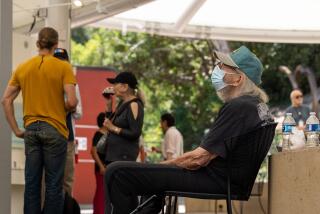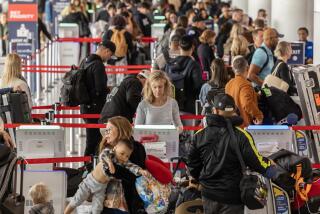Delta variant is spreading in California as COVID-19 battle enters an uncertain phase
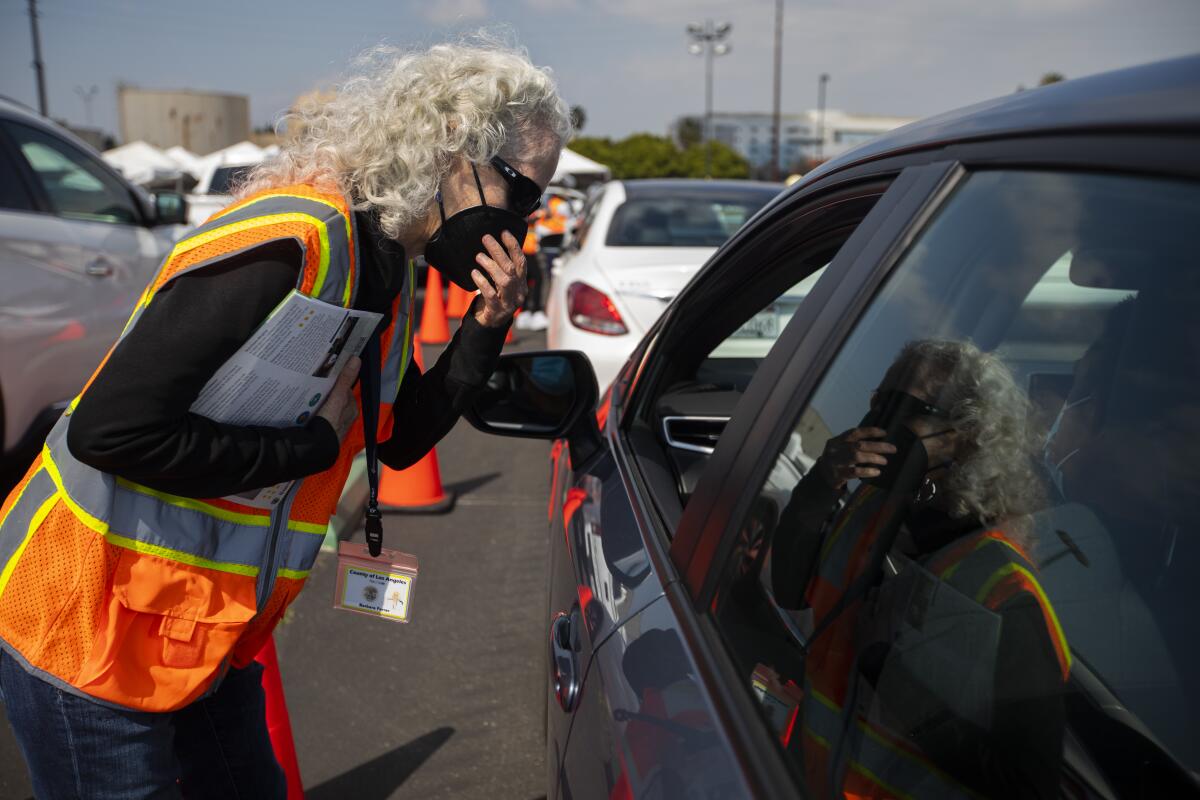
The Delta variant of the coronavirus is beginning to spread in California, offering a preview of how the battle of the pandemic is going to change as officials move to protect a shrinking minority who remain at risk because they have not been vaccinated.
The Delta variant may be twice as transmissible as the conventional strain. But California and the rest of the nation are far more protected against COVID-19 than ever before. California has one of the highest vaccination rates in the nation, and the U.S. has one of the highest per capita rates of inoculation in the world.
And vaccines available in the U.S. are believed to be effective against the Delta variant, as they have been for all known variants. But that still leaves tens of millions of unvaccinated people still potentially vulnerable.
“If you’re vaccinated, it’s nothing,” UC San Francisco epidemiologist Dr. George Rutherford said of the Delta variant. “If you’re not vaccinated, you’re hosed.”
Officials don’t expect another deadly COVID-19 surge on the order of those that walloped the nation three times in the past 15 months. Rather, the risk is more that the Delta variant will take root in pockets of unimmunized communities that haven’t previously been infected with the coronavirus.
This is the kind of future experts expect: one in which most of the population, who are vaccinated, are well protected against the world’s worst pandemic in the last century, while risks remain for those who aren’t vaccinated.
The Delta variant, also known as B.1.617.2, was identified in India but has since been found in 60 countries. It’s thought to be more transmissible.
Now, “nearly every death due to COVID-19 is particularly tragic,” said Dr. Rochelle Walensky, director of the U.S. Centers for Disease Control and Prevention, “because nearly every death — especially among adults — due to COVID-19 is, at this point, entirely preventable.”
California is particularly well placed to deal with the Delta variant, with 73% of the state’s adults having received at least one dose of vaccine — even better than the respectable national rate of 66% — and because many other Californians have survived COVID-19 from past surges.
“We will never see the surges that were overwhelming our hospital system,” said Dr. Robert Kim-Farley, medical epidemiologist and infectious diseases expert at the UCLA Fielding School of Public Health. “There just is not enough people susceptible at this time to create those magnitudes of surge.”
Nationwide, the average number of new coronavirus cases reported daily has fallen to about 11,000 — one of the lowest numbers since the beginning of the pandemic and a 96% decline from the peak of more than 252,000 cases a day reported in early January. At the peak, about 3,500 Americans were dying a day from COVID-19, and now, fewer than 300 Americans are dying a day.
Dr. Anthony Fauci, the U.S. government’s top infectious disease expert, said he didn’t think national daily death counts would approach anywhere near past peaks.
“I don’t think ... that you’re going to see things like 1,000 deaths a day. I think that is a bit much. But there is a danger — a real danger — that if there is a persistence of a recalcitrance to getting vaccinated, that you could see localized surges,” Fauci said. “All of that is totally and completely avoidable by getting vaccinated.”
Coronavirus case rates for Black residents dropped by 13% and by 22% for Latino residents, while cases have dropped by 33% for white residents.
Experts don’t expect a return to stay-at-home orders that shut down broad swaths of the economy due to the Delta variant, also known as B.1.617.2, which was first identified in India.
“No. Absolutely not. No, no, no, no,” said Dr. Eric Topol, director of the Scripps Research Translational Institute in La Jolla. “We’re not going back. The really good, highly potent and safe vaccines have put us in a position that’s solid.”
That optimism is particularly welcome in California, which just last week finally reopened its economy following more than a year of coronavirus-motivated limitations and closures.
During the height of last winter’s surge, about 550 Californians died daily from COVID-19. Now, California is reporting about 20 deaths a day from COVID-19.
But just as important as how many new cases are being reported is what kinds of variants are being spread through these additional infections. The Delta variant is showing up worryingly often, setting off alarm bells at both the state and federal levels.
“The Delta variant is currently the greatest threat in the U.S. to our attempt to eliminate COVID-19,” Fauci said.
California has received nearly 70,000 forms by residents looking to correct or complete their vaccination information, the state Department of Public Health says.
Nationwide, between May 9 and May 22, the Delta variant comprised less than 3% of genomically sequenced coronavirus samples. But between June 6 to June 19, that proportion rose to more than 20%.
The United Kingdom, where officials were recently forced to postpone a planned easing of COVID-19 restrictions due to an uptick in coronavirus cases, provides a cautionary example of the Delta variant’s extraordinary infectiousness.
There were only a tiny handful of cases of the Delta variant in the U.K. in late March, but that grew to about 25% of cases by early May. By mid-June, 95% of cases were tied to the Delta variant.
But the U.K.’s recent uptick in cases and hospitalizations is still very mild compared with its winter surge. Daily coronavirus cases in the U.K. are down more than 80% from the winter peak, while the number of people in the hospital with COVID-19 is still down by about 97%.
While the Delta variant is known to be considerably more infectious, experts differ on whether they think it causes more severe illness than other coronavirus strains.
Fauci said this week that the variant is associated with increased disease severity as reflected by hospitalization risk.
Topol agreed: “More young people are getting infection, right, and they’re winding up in the hospital. That’s not a good sign.” By contrast, with the conventional strains, young people — which Topol said refers to those under age of 40 — were rarely in the hospital.
But, Topol added, there’s no evidence the Delta variant is more likely to cause death than other variants.
Though it is impossible to say for sure, some suggest the state’s $116.5-million incentive program probably sparked renewed interest in getting a shot.
The U.K. is still reporting fewer than 15 COVID-19 deaths a day since the beginning of May, down from about 1,300 deaths a day at the peak of the pandemic.
Not everyone is convinced that the Delta variant is more likely to cause more severe disease.
COVID-19 hospitalizations in the U.K. are actually growing more slowly than new cases — meaning the chance an infected person has of being hospitalized has been reduced, said Dr. Monica Gandhi, an infectious diseases expert at UC San Francisco.
Another promising sign, Gandhi said, is that there doesn’t seem to be any increased risk to young children. Young children are already less likely to contract the coronavirus because they have far fewer proteins called ACE2 receptors in their noses that the coronavirus needs to access to infect the body.
In California, the Delta variant has grown from comprising 1.8% of analyzed coronavirus samples in April to 4.8% of them in May.
The Delta variant is now the fourth most-often identified variant in California. Still at the top is the Alpha variant, first identified in the U.K. (also known as B.1.1.7), which represents 58.6% of samples.
Some counties report those data individually. Northern California’s most populous county, Santa Clara, for instance, has confirmed 58 cases of the Delta variant.
And in Los Angeles County, officials say they identified 64 cases of the variant among residents from late April to early June, with most of those confirmed within the last few weeks.
Delta “is the most infectious variant that has been identified to date here in California,” L.A. County Public Health Director Barbara Ferrer said Tuesday. “And that means, for those people that aren’t vaccinated, it is going to pose a big risk.”
Ferrer noted that much of the documented transmission in the county appears to be occurring in households, as 34 of the confirmed variant cases lived with one or more people tied to other cases.
When the county next updates its sequencing findings, Ferrer said she is “positive that we will see a significant increase in specimens that are testing positive for the Delta variant because … it does in fact proliferate very quickly.”
Although health experts see reason for confidence as California ends many COVID restrictions, here are some dangerous health scenarios they’ll be watching out for.
Vaccines that have been shown to be effective against the Delta variant include the two-dose Pfizer-BioNTech vaccine and the two-dose AstraZeneca inoculation — which is not yet authorized for use in the U.S. but is in widespread use in the U.K. and similar to the one manufactured by Johnson & Johnson.
“We have the tools. So let’s use them and crush the outbreak,” Fauci said.
Among the vaccines available in the United States, both Pfizer-BioNTech and Moderna require two shots, administered several weeks apart. Johnson & Johnson entails a single dose.
One recent study found that getting both doses of the Pfizer-BioNTech vaccine was 88% effective against symptomatic disease caused by the Delta variant and 96% protective from hospitalization.
Though 73% of adult Californians have at least one shot, only about 59% are fully vaccinated to this point, according to data from the Centers for Disease Control and Prevention.
Walensky cautioned that the Delta variant “represents a set of mutations that could lead to future mutations that evade our vaccine,” adding “that’s why it’s more important than ever to get vaccinated now to stop the chain of infection, the chain of mutations.”
As case numbers decline and states reopen, the U.S. campaign to vanquish COVID-19 is turning into a slog, with a variant gaining a bigger foothold.
Some experts are optimistic that this coronavirus will not mutate to a point where it overpowers our vaccines.
“After these 18 months of evolution, we haven’t seen anything that has evaded our vaccine protection,” said Topol, who recently wrote about the subject for the journal Nature Medicine. But, he added, “we have to be generous about getting vaccines everywhere — because that’s our best defense to prevent that from happening.”
More to Read
Sign up for Essential California
The most important California stories and recommendations in your inbox every morning.
You may occasionally receive promotional content from the Los Angeles Times.
